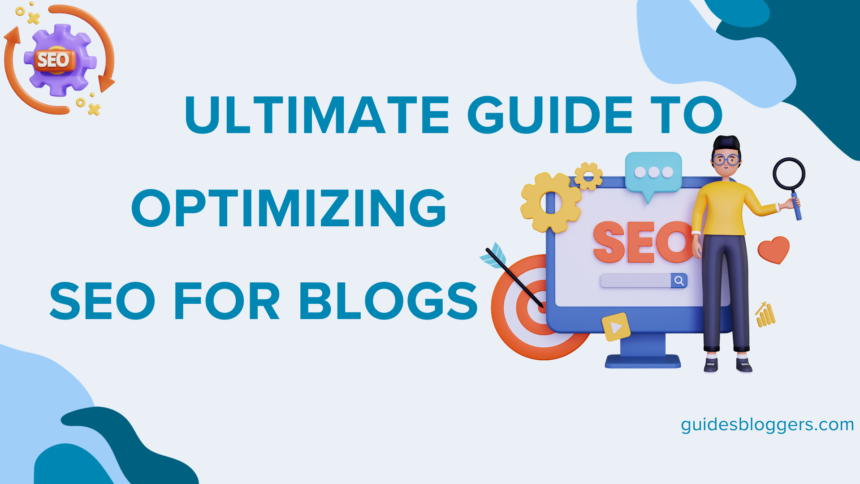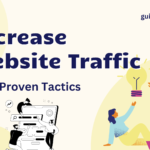SEO for blogs , where a seasoned blogger spills the beans on
Introduction to SEO for Blogs
Before diving into the world of SEO (Search Engine Optimization), let me share why it matters. Essentially, SEO is all about making your blog “visible” to search engines, which increases the chances of your blog popping up when someone types in a relevant search query.
Picture this: you’re a baker, and you’ve just baked the most mouth-watering batch of cookies. Now, how good would it feel if your cookies could jump out in front of folks wandering down the street, tempting them with a whiff of freshly baked goodness? Well, that’s exactly what SEO does for your blog—it makes it visible to people looking for information on topics you have expertise in.
Your blog content plays a significant role in your website’s SEO. Good-quality content helps search engines like Google understand what your site is about, and search engines reward sites that provide authentic, original, and high-quality content.
And trust what I’m saying here, because, as a blogger who has seen website traffic rise after optimizing for SEO, I can vouch for how effective this can be. Now, let’s deep-dive into the specifics for you to understand better.

SEO Keyword Research for Blogs
Think of keywords as the breadcrumbs that lead potential readers to your blog. They are the search terms that people type in when they are looking for information on a topic.
One of the easiest ways to identify relevant keywords is by simply typing into Google yourself. When you begin typing a topic, Google will suggest other common search queries that might give you an idea of what people are interested in.
Also, don’t forget to experiment with these techniques:
- Let the search engine suggest searches for you.
- Look at the ‘People Also Ask’ section of Google search results.
- Pay attention to ‘Related Searches’ at the bottom of Google search results.
Once you find your list of sweet keywords, it’s time to weave them naturally into your blog content. The key word being ‘naturally’. You don’t want to stuff your content with keywords at the expense of readability.
Blog Layout & On-Page SEO Techniques
The layout of your blog can make a big difference in how search engines perceive it. Let’s talk about those magic words: Meta tags and Page Titles. Meta tags are invisible tags that provide data about your page to search engines and website visitors. When I talk page titles, I mean the names of your individual blog posts.
Then comes the H1, H2, H3… strategy. In short, the funny looking ‘H’s are the headers and subheaders of your blog. Thoughtfully worked keyword phrases into these can add value to your on-page SEO.
And yes, internal links matter! Think about it as a way of letting visitors know about the wealth of information available on your site.
The Power of High-Quality, SEO-Driven Content
When I say ‘high-quality’ content, I mean text that’s well-researched, well-written, interesting, highly informative, and yes, packed with your SEO keywords.
Think of your favorite authors. They write books that draw you in and hold your attention, right? That’s what you want for your blog.
Blubber loaded facts just won’t cut it. Your readers have a genuine thirst for knowledge – quench it!
Simply put, the better your content quality, the higher your chances of getting noticed by search engines, and the more your readers will appreciate your blog.
The Role of Backlinks in Blog SEO
Once upon a time, I wrote a blog post, and another blogger liked it so much that they linked it in their own post. And that helped me a ton!
That’s a backlink, my friend! The more sites that link back to your blog, the more search engines start to believe in your content, raising your blog’s ranking. Your blog starts being seen as an authoritative hub of information. Remember, the quality of the linking site matters too.
Tracking Blog SEO Performance
You know it’s like baking – you keep checking to see if your cake is rising nice and fluffy. And if it’s not, you adjust your recipe, right? SEO is no different.
Google Analytics is your friendly tool here – it tells you what’s working and what’s not, so you can tweak your SEO strategies accordingly.
There’s a lot of data you could possibly explore, but some key metrics are your organic traffic, the average amount of time users spend on your blog, the bounce rate, and conversion rate.
Evolving with SEO: Staying ahead of Changes
Alright, the catch with SEO is that it’s like that fashionable friend who keeps updating their style. The trends and algorithms are constantly changing.
Staying up to speed with SEO updates gives you an edge to adapt your blog SEO methods with the changing digital landscape. Google’s algorithm updates, for instance, can significantly impact your SEO, so staying informed about these changes is crucial.
Summary
So there you have it, guys! A comprehensive, easy-to-understand guide on how to leverage SEO to give your blog that extra zest. Did you think you could skip all this and still have a successful traffic-heavy blog? Well, it’s theoretically possible, but why make things harder for yourself?
Don’t forget, the learning never stops in the world of SEO – keep exploring, keep experimenting.
Learn Easy Way To Begin Your Blogging Journey
FAQ
What are the basic steps for doing SEO for my blog?
The basic steps include doing keyword research, optimizing your blog by incorporating those keywords, enhancing the blog layout, creating high-quality SEO content, building backlinks, tracking your blog SEO performance, and staying updated with SEO trends.
How long does it take to see results from blog SEO?
Like a well-made stew, SEO takes time to cook. It can take anywhere from one to six months to start seeing results, depending on various factors like the competitiveness of your industry and the popularity of your keywords.
Does every blog post need to be SEO optimized?
Not necessarily, but it’s a good idea. SEO is one of the most effective ways to increase your blog traffic, reach a wider audience, and boost your online visibility. Remember, every blog post is a new opportunity for your site to be found on search engines. So why miss out?












